- Jan 25, 2009
- 19,765
- 1,428
- Faith
- Oriental Orthodox
- Marital Status
- Private
- Politics
- US-Others
Shalom & Blessings

Concerning why I was writing, I was going through the scriptures with a very dear friend of mine and came across something that has been on my mind for awhile:
36 Joseph, a Levite from Cyprus, whom the apostles called Barnabas (which means son of encouragement), 37 sold a field he owned and brought the money and put it at the apostles feet.
Read this dozens of times over the years...thinking it was just about generosity in the church and how a church impacted by the Spirit will always seek to look out for one another. Often heard the same thing taught in many churches/sermons.
However, I was reminded recently of how often one can train themselves to read over things that are very central because they've trained themselves to in terms of themes rather than for details. And I say that in light of how I don't know why I never caught the fact that Barnabas..the same man who sponsored Paul before the apostles/trained him up for a good bit and worked with him building up the church ( Acts 9:26-28, Acts 11:24-26, Acts 11:25-27, Acts 13:1-3 )...that same Barnabas was a LEVITE!!!
Going through the OT simultaneously/seeing all that the Levites were required to do in the temple/tabernacle (from prayer/intercession to setting things up and even doing music...I Chronicles 23:24-32), it's wild considering that one would have been a teacher to Paul.
Someone experienced in priestly roles, who knew the seriousness of the precence of the Lord and what it meant to be set apart for special tasks that no one deserved......and somee who could be a good complinent to Paul who was amongst the Best of the Best in scholarship/knowing the Law. It makes sense as to why Barnabas was able to advocate for Paul before the apostles when they didn't trust Paul at first....for he wasn't someone randomly giving advice. Instead, he was a man of considerable authority/respect that even the apostles themselves would need to pay attention to because of his very background. Although they (the apostles) were chosen to follow Jesus/see what God's prescence was like over the years, Barnabas as a Levite would have grown up in it all of his life.
I stil wonder on how Barnabas could have owned land if he was a Levite since Levites owned no inherited land within the Holy Land, but mabye the regulations may not have applied to the Levities in other countries like Cyprus.
What I've seen thus far is that 2 Chronicles 31:19, Nehemiah 12:44, and Nehemiah 13:10 seem to speak on that issue the loudest.. The last one confirmed that Levites owned fields after the Babylonian exile....and it turns out that the portions of the Levites had not been given to them.. so that the Levites and the singers, who did the work, had fled each to his field (Nehemiah 13:10). Due to the mismanagement of the Temple by Eliashib the priest, the tithe for the Levites were neglected and they had to flee each to his field to earn his living. Of course, the situation was rectified by Nehemiah. But how did this ownership of field come about? It seems one would need to go all the way back to Moses when the Lord said "Command the people of Israel, that they give to the Levites, from the inheritance of their possession, cities to dwell in; and you shall give to the Levites pasture lands round about the cities." (Numbers 35:1-2)
Thus, the Levites were given cities to dwell in and pasture lands round about the cities and Joshua carried out this command. The cities of the Levites in the midst of the possession of the people of Israel were in all forty-eight cities with their pasture lands (Joshua 21:41). Therefore, the Levites were given 48 cities with their pasture lands after the Israelites had entered Canaan. It seems a lot of events had taken place before the age of the Apostles. Yet, the Levites were always entitled to own land.....as long as it was within certain territory.
But with Barnabas being born in Cyprus, I don't know if the land he got was from an inheritance he had from an ancestor who lived in Israel. That would be a good possibility. Even back in Jeremiahs time, we find the prophet-priest owning land (see Jeremiah 32:6‒15). Moreover, scholars point to Deuteronomy 18:8 as evidence that Levites held property privately, though the tribe itself did not receive inheritances.
Who knows...
Nonetheless, I find it amazing how much the details can make a big differnece...and in considering how Barnabas was a Levite, part of me has wondering on how Barnabas being a Levite opens the door for seeing other possibilities. One of the biggest examples being what's seen in the Book of Hebrews and its detailed descriptions of the Levitical priesthood/New Covenant. FOr many have supposed that it was Paul who was a possible author...and in light of Paul being trained by a Levite, it'd make more sense.
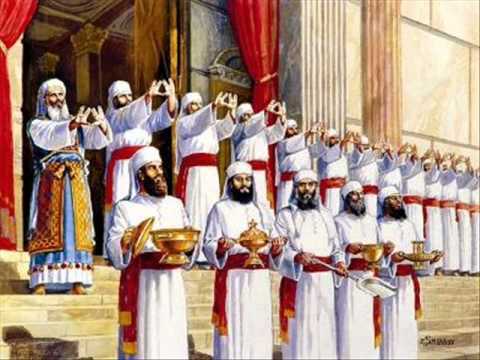
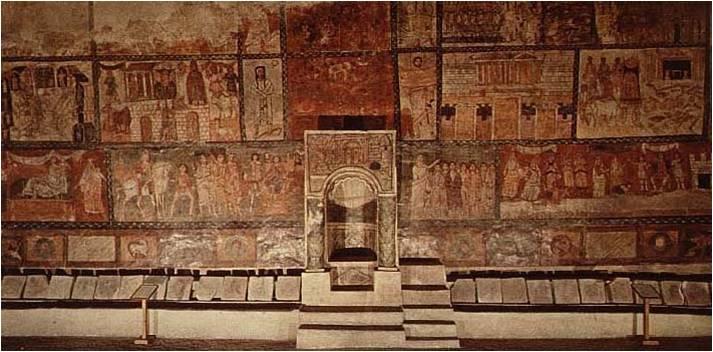
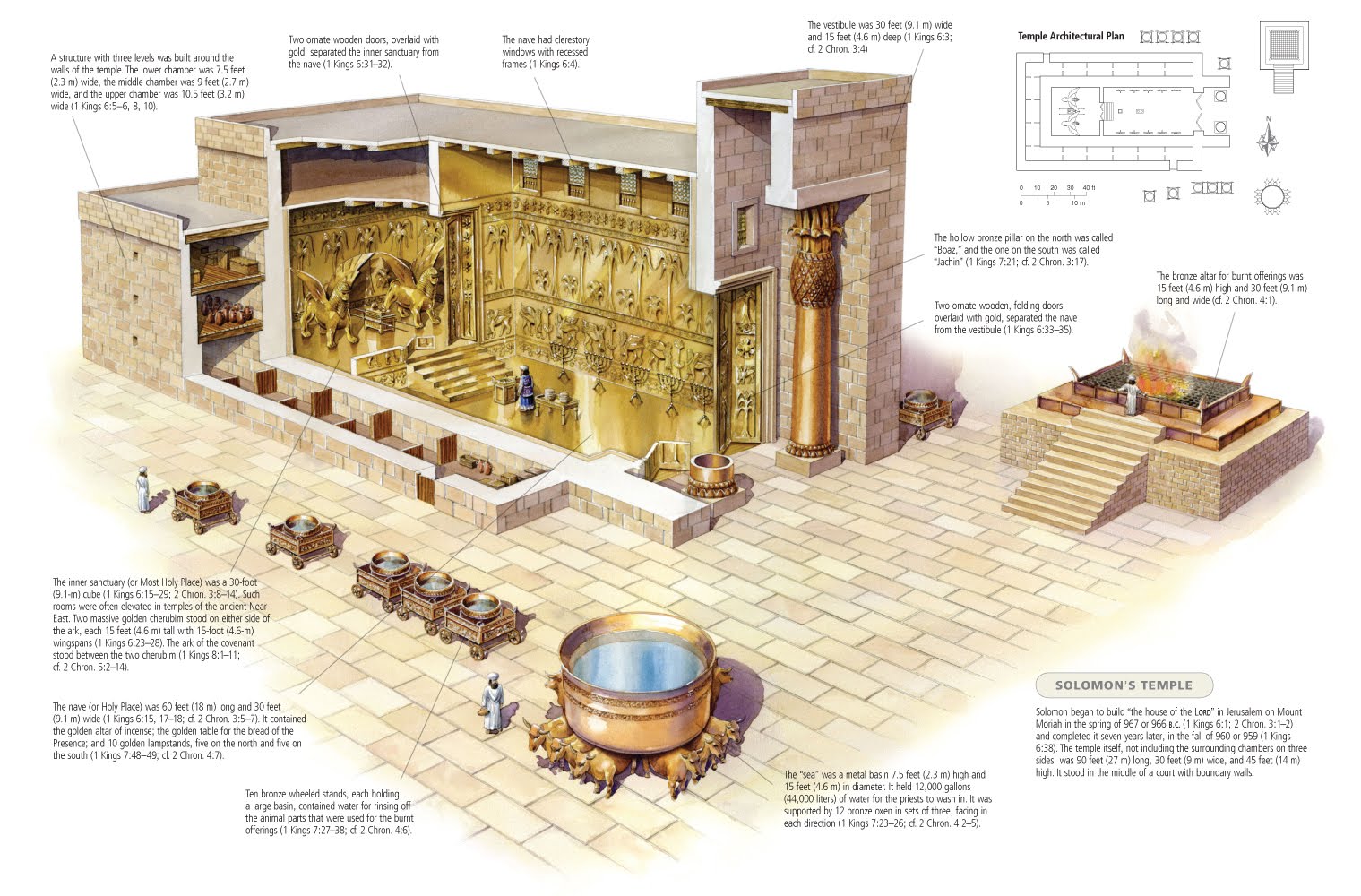
Granted, hough he was a Levite, Barnabas may not have been a priest (kohen), as only the sons of Aharon were priests (kohanim). In other words, only certain Levites, not all of them. They had to be descended from Aharon patrilineally.
But it never says in scripture/the Torah that others who aided the Sons of Aaron in the Temple or Tabernacle did not do priestly duties. They were simply not doing the main duties of the premier priests. With the Levites, when they set themselves apart during the Golden Calf incidence, God blessed their dedication...and in reward for their dedication, God replaced the first borns with the tribe of Levi. "
The Levites then took on the duty of serving God.
That service included serving the priests.
Since all priests descend from Aaron, all priests are Levites. Yet all Levites are not priests the way that Aaron's descendants were, but they do serve the priests. Hence, you find mention of the priests and the Levites together, such as "And he gathered together all the leaders of Israel, with the priests and the Levites" (I Chronicles 23:2). One didn't have to be a priest as Aaron's sons in order to do priestly functions, just as Melchizedek didn't have to be of Aaron's line in order to be a priest Christ came from (Hebrews 7) and David didn't have to be of Aaron's line in order to be known as he was for having a priestly role as well as a prophet/king-role in what he did.
The sacred calling of the Levites is mentioned in various passages of the Pentateuch. ..as the author of the first chapters of Numbers, after recalling ( Exodus 28:29; Leviticus 8:9) the names and sacred functions of the sons of Aaron, adds the designation of the entire tribe of Levi who were to "stand in the sight of Aaron the priest to minister to him. And let them watch, and observe whatsoever appertaineth to the service of the multitude before the tabernacle of the testimony, and let them keep the vessels of the tabernacle, serving in the ministry thereof."
Though in Numbers 18:23, the special mission of the tribe is described broadly as a mediation between the Lord and his people, and though the Levite mentioned in the interesting a passage of Judges 17-18 is represented as exercising without qualification the functions of the priesthood, it is held by many commentators that at an early date a distinction was made between the priests of the family of Aaron and the simple Levites--a distinction which became very pronounced in the later religious history of God's people. The ceremonies with which the simple Levites were consecrated to the service of the Lord are described in Numbers 8:5-22. Besides their general function of assisting the priests, the Levites were assigned to carry the Tabernacle and its utensils, to keep watch about the sanctuary, etc. That is still a priestly duty...or a ministry role that was highly revered alongside the priesthood.
This is why, IMHO, it makes sense to say that Barnabas was a priest. As a Levite, he would have worked in the temple (been called to) and assisting those who were high priests (Sons of Aaron)--and although he would have not been in the position of priest as Aaron's sons were, there were more than enough other things he was called to teach..be it in knowing how to assist in the temple, the prescence of the Lord in the temple or what it was like to carry the Ark /do music and worship (as they were called to do, I Chronicles 9:1-34 and 1 Chronicles 15:11-17)
And when it comes to the terminology of "priests" it was never soley in reference to those who were Sons of Aarons.
Again, the Levites were formally set apart after the now-infamous incident with the golden calf idol that the Israelites made while Moses was away receiving The Ten Commandments from The Lord (Exodus chapter 32). Although others besides the Levites were righteous and not mentioned, scripture notes the Levites avoided the idolatry/actually killed 3,000 of those who were running wild, as ordered by Moses (Exodus 32:25-29). After the incident was over, Moses said of the Levites, "Today you have ordained yourselves for the service of The Lord, each one at the cost of his son and of his brother, that he may bestow a blessing upon you this day." (Exodus 32:29). The Levites were natural allies of Moses because Moses himself was of the tribe of Levi (Exodus 2:1-2,10).
Levi had 3 sons - Gershon, Kohath, and Merari...and from those branches of the family, the Levites were organized into 3 levels of service:
The Early Church valued OT practice - and the concept of Paul learning on liturgical practices from someone like Barnabas who experienced it up-close and personal opens up a lot of doors when I consider the ways that Liturgy was a big deal in the early church - and that's a big deal, IMHO. All for Christ/Yeshua!!!
If anyone has any thoughts on the issue, would love to hear sometime. Shalom



Concerning why I was writing, I was going through the scriptures with a very dear friend of mine and came across something that has been on my mind for awhile:
Acts 4:35-37
33 With great power the apostles continued to testify to the resurrection of the Lord Jesus. And Gods grace was so powerfully at work in them all 34 that there were no needy persons among them. For from time to time those who owned land or houses sold them, brought the money from the sales 35 and put it at the apostles feet, and it was distributed to anyone who had need.
36 Joseph, a Levite from Cyprus, whom the apostles called Barnabas (which means son of encouragement), 37 sold a field he owned and brought the money and put it at the apostles feet.
However, I was reminded recently of how often one can train themselves to read over things that are very central because they've trained themselves to in terms of themes rather than for details. And I say that in light of how I don't know why I never caught the fact that Barnabas..the same man who sponsored Paul before the apostles/trained him up for a good bit and worked with him building up the church ( Acts 9:26-28, Acts 11:24-26, Acts 11:25-27, Acts 13:1-3 )...that same Barnabas was a LEVITE!!!
Adds another dimension to things like reading the Epistle of Barnabas when considering that the Apostle Barnabas knew what priesthood was about on a personal level.
Going through the OT simultaneously/seeing all that the Levites were required to do in the temple/tabernacle (from prayer/intercession to setting things up and even doing music...I Chronicles 23:24-32), it's wild considering that one would have been a teacher to Paul.
Someone experienced in priestly roles, who knew the seriousness of the precence of the Lord and what it meant to be set apart for special tasks that no one deserved......and somee who could be a good complinent to Paul who was amongst the Best of the Best in scholarship/knowing the Law. It makes sense as to why Barnabas was able to advocate for Paul before the apostles when they didn't trust Paul at first....for he wasn't someone randomly giving advice. Instead, he was a man of considerable authority/respect that even the apostles themselves would need to pay attention to because of his very background. Although they (the apostles) were chosen to follow Jesus/see what God's prescence was like over the years, Barnabas as a Levite would have grown up in it all of his life.
I stil wonder on how Barnabas could have owned land if he was a Levite since Levites owned no inherited land within the Holy Land, but mabye the regulations may not have applied to the Levities in other countries like Cyprus.
What I've seen thus far is that 2 Chronicles 31:19, Nehemiah 12:44, and Nehemiah 13:10 seem to speak on that issue the loudest.. The last one confirmed that Levites owned fields after the Babylonian exile....and it turns out that the portions of the Levites had not been given to them.. so that the Levites and the singers, who did the work, had fled each to his field (Nehemiah 13:10). Due to the mismanagement of the Temple by Eliashib the priest, the tithe for the Levites were neglected and they had to flee each to his field to earn his living. Of course, the situation was rectified by Nehemiah. But how did this ownership of field come about? It seems one would need to go all the way back to Moses when the Lord said "Command the people of Israel, that they give to the Levites, from the inheritance of their possession, cities to dwell in; and you shall give to the Levites pasture lands round about the cities." (Numbers 35:1-2)
Thus, the Levites were given cities to dwell in and pasture lands round about the cities and Joshua carried out this command. The cities of the Levites in the midst of the possession of the people of Israel were in all forty-eight cities with their pasture lands (Joshua 21:41). Therefore, the Levites were given 48 cities with their pasture lands after the Israelites had entered Canaan. It seems a lot of events had taken place before the age of the Apostles. Yet, the Levites were always entitled to own land.....as long as it was within certain territory.
But with Barnabas being born in Cyprus, I don't know if the land he got was from an inheritance he had from an ancestor who lived in Israel. That would be a good possibility. Even back in Jeremiahs time, we find the prophet-priest owning land (see Jeremiah 32:6‒15). Moreover, scholars point to Deuteronomy 18:8 as evidence that Levites held property privately, though the tribe itself did not receive inheritances.
Who knows...
Nonetheless, I find it amazing how much the details can make a big differnece...and in considering how Barnabas was a Levite, part of me has wondering on how Barnabas being a Levite opens the door for seeing other possibilities. One of the biggest examples being what's seen in the Book of Hebrews and its detailed descriptions of the Levitical priesthood/New Covenant. FOr many have supposed that it was Paul who was a possible author...and in light of Paul being trained by a Levite, it'd make more sense.



Granted, hough he was a Levite, Barnabas may not have been a priest (kohen), as only the sons of Aharon were priests (kohanim). In other words, only certain Levites, not all of them. They had to be descended from Aharon patrilineally.
But it never says in scripture/the Torah that others who aided the Sons of Aaron in the Temple or Tabernacle did not do priestly duties. They were simply not doing the main duties of the premier priests. With the Levites, when they set themselves apart during the Golden Calf incidence, God blessed their dedication...and in reward for their dedication, God replaced the first borns with the tribe of Levi. "
"Consecrate yourselves today to the LORD, that He may bestow on you a blessing this day, for every man has opposed his son and his brother" (Exodus 32:29).
Now behold, I Myself have taken the Levites from among the children of Israel instead of every firstborn who opens the womb among the children of Israel. Therefore the Levites shall be Mine, because all the firstborn are Mine. (Numbers 3:12-13).
Now behold, I Myself have taken the Levites from among the children of Israel instead of every firstborn who opens the womb among the children of Israel. Therefore the Levites shall be Mine, because all the firstborn are Mine. (Numbers 3:12-13).
"At that time the LORD separated the tribe of Levi to bear the ark of the covenant of the LORD, to stand before the LORD to minister to Him and to bless in His name, to this day" (Deuteronomy 10:8).
"And I have given the Levites as a gift to Aaron and his sons from among the children of Israel, to do the work for the children of Israel in the tabernacle of meeting (Numbers 8:19).
The other Levites who were not sons of a subordinate ministers appointed in the Mosaic Law for the service of the Tabernacle and of the Temple
Since all priests descend from Aaron, all priests are Levites. Yet all Levites are not priests the way that Aaron's descendants were, but they do serve the priests. Hence, you find mention of the priests and the Levites together, such as "And he gathered together all the leaders of Israel, with the priests and the Levites" (I Chronicles 23:2). One didn't have to be a priest as Aaron's sons in order to do priestly functions, just as Melchizedek didn't have to be of Aaron's line in order to be a priest Christ came from (Hebrews 7) and David didn't have to be of Aaron's line in order to be known as he was for having a priestly role as well as a prophet/king-role in what he did.
The sacred calling of the Levites is mentioned in various passages of the Pentateuch. ..as the author of the first chapters of Numbers, after recalling ( Exodus 28:29; Leviticus 8:9) the names and sacred functions of the sons of Aaron, adds the designation of the entire tribe of Levi who were to "stand in the sight of Aaron the priest to minister to him. And let them watch, and observe whatsoever appertaineth to the service of the multitude before the tabernacle of the testimony, and let them keep the vessels of the tabernacle, serving in the ministry thereof."
Though in Numbers 18:23, the special mission of the tribe is described broadly as a mediation between the Lord and his people, and though the Levite mentioned in the interesting a passage of Judges 17-18 is represented as exercising without qualification the functions of the priesthood, it is held by many commentators that at an early date a distinction was made between the priests of the family of Aaron and the simple Levites--a distinction which became very pronounced in the later religious history of God's people. The ceremonies with which the simple Levites were consecrated to the service of the Lord are described in Numbers 8:5-22. Besides their general function of assisting the priests, the Levites were assigned to carry the Tabernacle and its utensils, to keep watch about the sanctuary, etc. That is still a priestly duty...or a ministry role that was highly revered alongside the priesthood.
This is why, IMHO, it makes sense to say that Barnabas was a priest. As a Levite, he would have worked in the temple (been called to) and assisting those who were high priests (Sons of Aaron)--and although he would have not been in the position of priest as Aaron's sons were, there were more than enough other things he was called to teach..be it in knowing how to assist in the temple, the prescence of the Lord in the temple or what it was like to carry the Ark /do music and worship (as they were called to do, I Chronicles 9:1-34 and 1 Chronicles 15:11-17)
And when it comes to the terminology of "priests" it was never soley in reference to those who were Sons of Aarons.
Again, the Levites were formally set apart after the now-infamous incident with the golden calf idol that the Israelites made while Moses was away receiving The Ten Commandments from The Lord (Exodus chapter 32). Although others besides the Levites were righteous and not mentioned, scripture notes the Levites avoided the idolatry/actually killed 3,000 of those who were running wild, as ordered by Moses (Exodus 32:25-29). After the incident was over, Moses said of the Levites, "Today you have ordained yourselves for the service of The Lord, each one at the cost of his son and of his brother, that he may bestow a blessing upon you this day." (Exodus 32:29). The Levites were natural allies of Moses because Moses himself was of the tribe of Levi (Exodus 2:1-2,10).
Levi had 3 sons - Gershon, Kohath, and Merari...and from those branches of the family, the Levites were organized into 3 levels of service:
The first level was composed of Aaron and his offspring, who were descended from Levi's son Kohath. They formed the priesthood.
The second level was made up of all of the other descendants of Kohath who were not descendants of Aaron. They were in charge of the most sacred parts of the Tabernacle (Numbers 3:27-32, 4:4-15, 7:9).
The third level consisted of all of the descendants of Gershon and Merari, who were given lesser duties (Numbers 3:21-26,33-37).
The Sons of Aaron were High priests, but the ministers who served in the temple as assistants were also known as priests as well (1 Chronicles 16:38-40, Nehemiah 3:1-3 ). Saying Barnabas was a Levite/priest isn't an issue, IMHO, since all Levites were considered priests due to their work in the temple assistance....even though the Levites descended from Aaron were the only ones who could be high priests and had a greater sense of weight with the term "priest" The second level was made up of all of the other descendants of Kohath who were not descendants of Aaron. They were in charge of the most sacred parts of the Tabernacle (Numbers 3:27-32, 4:4-15, 7:9).
The third level consisted of all of the descendants of Gershon and Merari, who were given lesser duties (Numbers 3:21-26,33-37).
2 Chronicles 11:14
13 The priests and Levites from all their districts throughout Israel sided with him. The Levites even abandoned their pasturelands and property and came to Judah and Jerusalem, because Jeroboam and his sons had rejected them as priests of the LORD 15 when he appointed(D) his own priests(E) for the high places and for the goat(F) and calf(G) idols he had made.
13 The priests and Levites from all their districts throughout Israel sided with him. The Levites even abandoned their pasturelands and property and came to Judah and Jerusalem, because Jeroboam and his sons had rejected them as priests of the LORD 15 when he appointed(D) his own priests(E) for the high places and for the goat(F) and calf(G) idols he had made.
Deuteronomy 18:1
[ Offerings for Priests and Levites ] The Levitical priestsindeed, the whole tribe of Leviare to have no allotment or inheritance with Israel.
[ Offerings for Priests and Levites ] The Levitical priestsindeed, the whole tribe of Leviare to have no allotment or inheritance with Israel.
If anyone has any thoughts on the issue, would love to hear sometime. Shalom


Last edited:




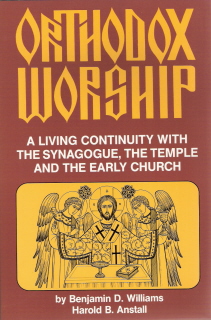

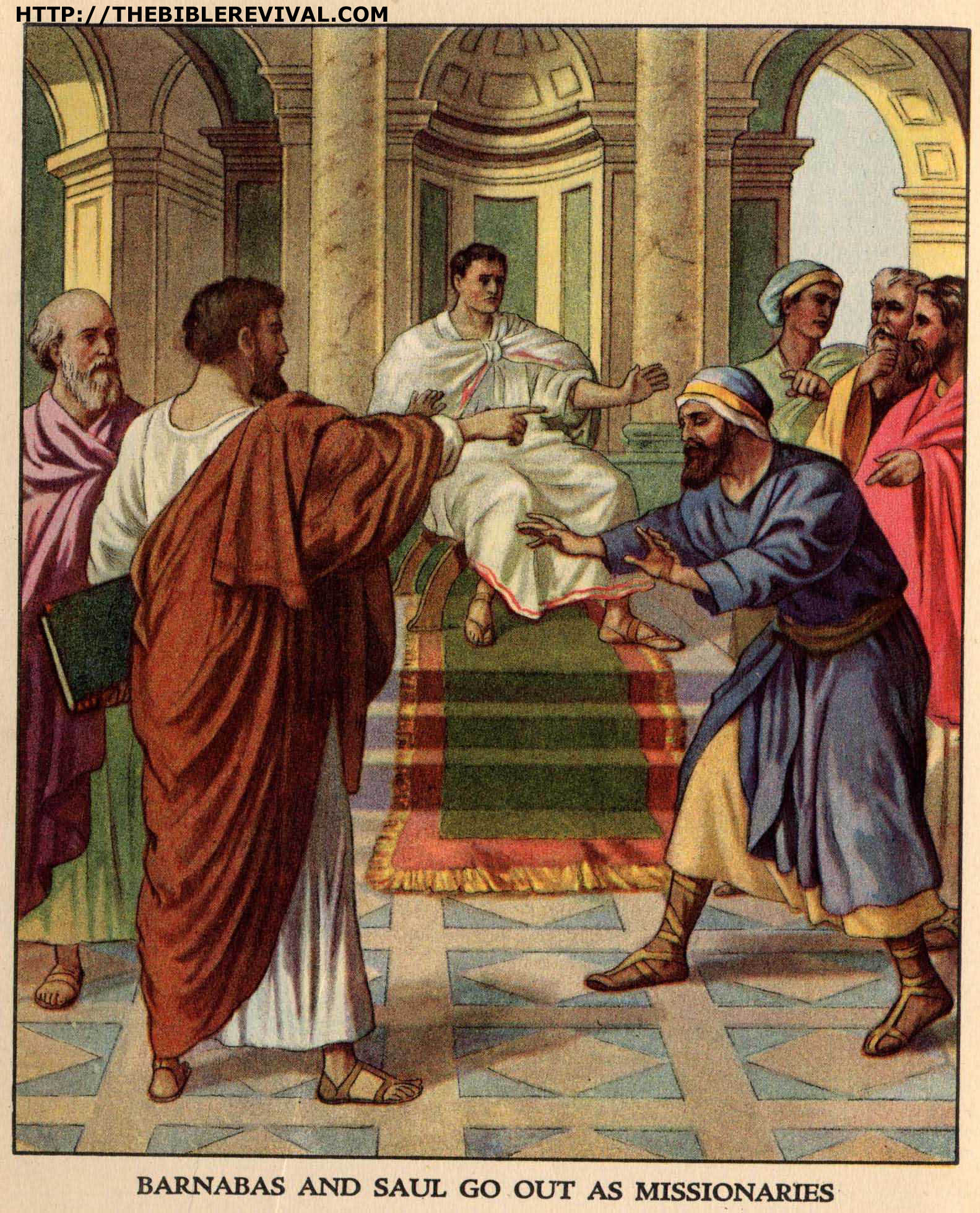
 . And with them being both peers and ye
. And with them being both peers and ye